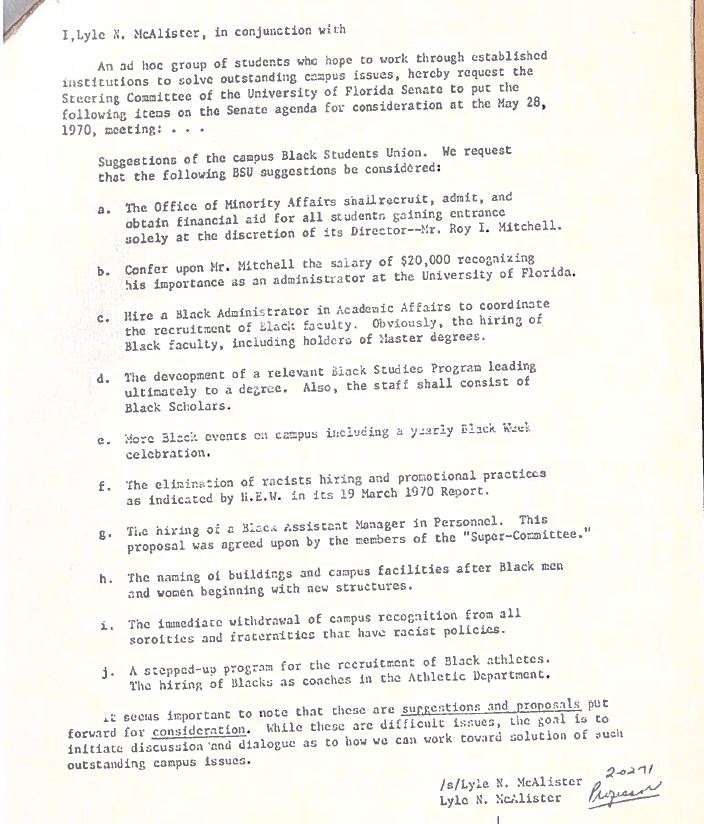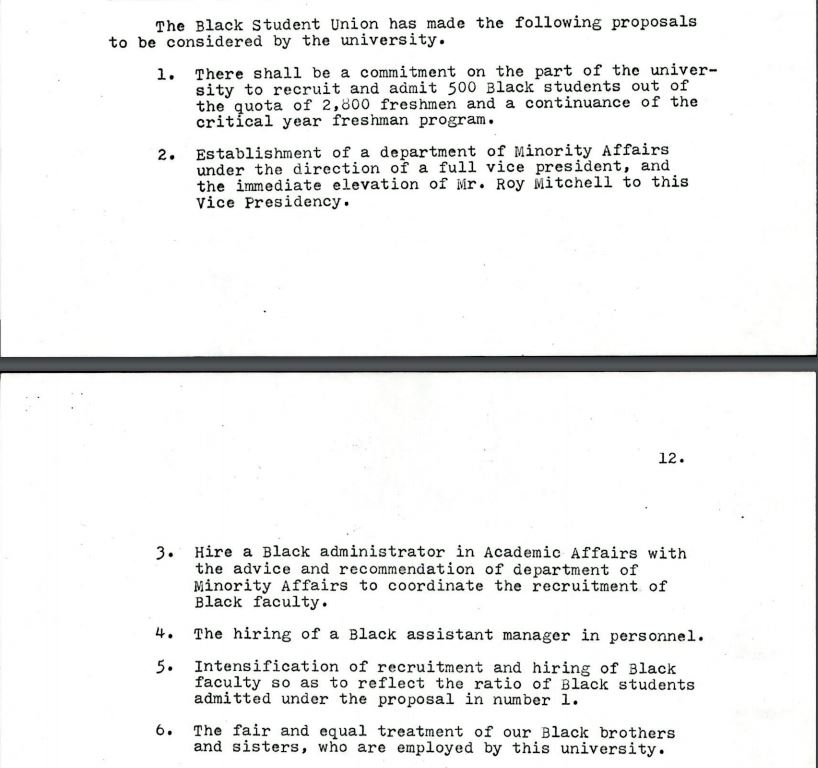On April 4, 1968, James Earl Ray assassinated Dr. Martin Luther King, Jr. at the Lorraine Hotel in Memphis, TN. The following day over one hundred rebellions occurred across the country including protests on college campuses. By 1968, southern white universities had admitted small numbers of African American students who encountered racism on and off campus. From 1968 to the early 1970s, black college students, staff, and faculty across the country took over administration offices and demanded that universities address systemic racism, hire black faculty and staff, increase black student enrollment, and create Black Studies Departments.
In 1969, there were only one hundred three black students at the University of Florida, many of whom experienced racism. The university failed to provide significant institutional support, such as a cultural center, black faculty and staff, courses on black history and culture, and a commitment to eradicate UF racist campus traditions. On April 15, 1971, sixty-six black students at the UF marched to President Steve O’Connell’s office and presented a list of six demands. The six demands were to (1) “recruit and admit 500 black students,” (2) promote Dr. Roy Mitchell to head a new office of Minority Affairs, (3) “hire a black administrator” to recruit black faculty, (4) hire an African American in Human Resources, (5) hire black faculty to “reflect the ratio” of 500 black students admitted, and (6) “fair and equal treatment” of all black employees at UF. In the fall of 1971, the Institute for Black Culture was created and three years later 1035 black students had enrolled at UF; but the struggle for racial equity continues.
This year is the 50th Anniversary of Black Thursday. Golden Anniversaries are special because many participants in Black Thursday can measure progress and the impact of institutional inequality. Last year, the African American Studies Program celebrated its Golden Anniversary and is finally on its way to becoming a full-fledge academic department. Since 2010, however, black student enrollment at UF has declined. We must remember all the black students at UF who paid the ultimate sacrifice who were suspended for protesting and withdrew from UF when President O’Connell denied the students amnesty. It is imperative for students to understand this history, excel in and outside of the classroom, and make sure what took fifty years to accomplish at UF takes less than ten.
List of Black Student Demands
May 28, 1970

The Original Six

** Melvin Sharpe “Black Thursday” A Black Student Demonstration at the University of Florida)